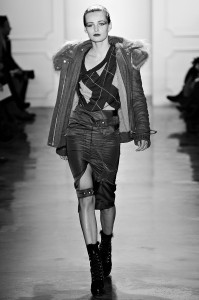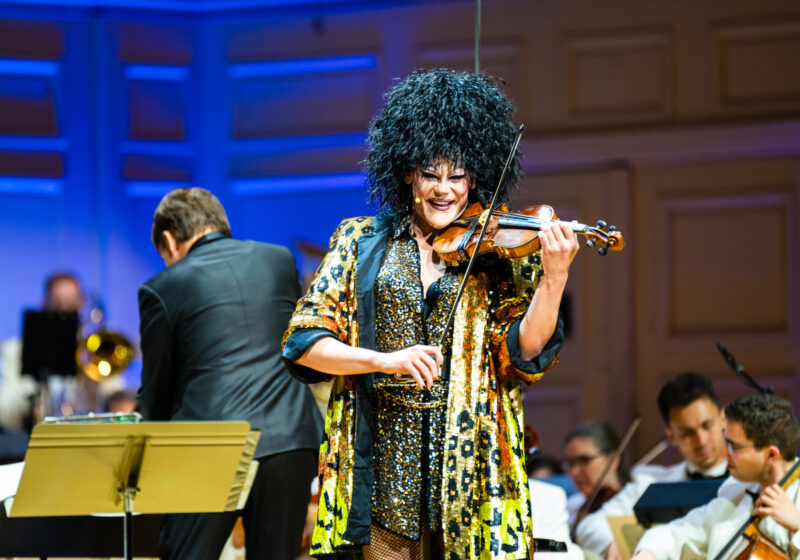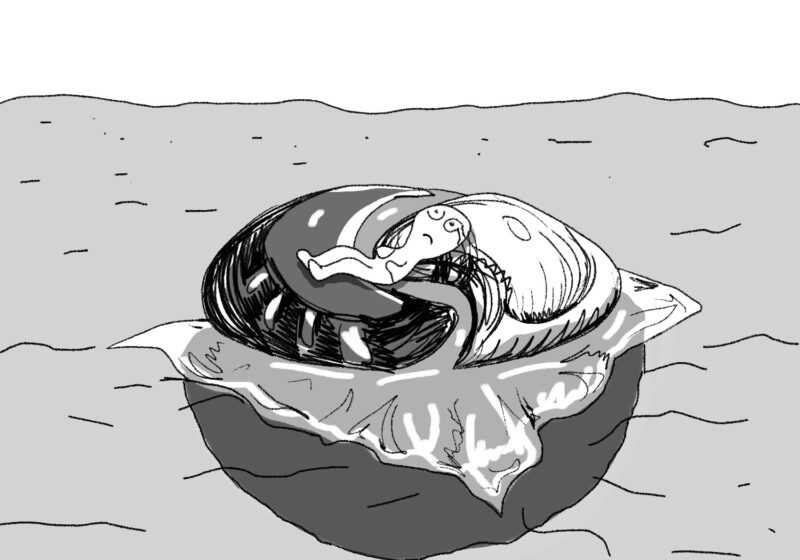We’re having a ’90s moment. That sounds odd, doesn’t it? We all remember the ’90s — at least, most of us do in nostalgic blurs of our childhood — and yet here they are being referenced as a fashion “moment,” conjured up again like the War time ’40s or the Woodstock ’60s.
Perhaps it’s only striking me now that fashion is also a measure of time and when one is old enough to see a “moment” revived in one’s lifetime, it is a strange phenomenon.
I’m a little late to the train here. Some ’90s trends have been resurfacing for a while — jean vests, floral leggings, heart-shaped sunglasses, etc. — but I cannot remember an entire line in recent years that devoted itself honestly to the reimagining of the ’90s, at least until this New York Fashion week.
Two labels in particular have caught my eye early: Vena Cava and Altuzarra. Their respective designers — Lisa Mayouck, Sophie Buhai and Joseph Altuzarra — are young and (in Altuzarra’s case) up-and-coming. All in their late twenties to early thirties, they certainly have some adolescent ties to the ’90s. Theirs is a greater connection than their older colleagues, who, although they lived the ’90s, did not experience them as a pinnacle moment in their youth.
Hamish Bowles (one of my favorite style icons — I advise Googling this charming man) wrote the review for Altuzarra’s show, calling it “an homage to the fashion grunge of the ’90s.” However, as Bowles points out later in his review, Altuzarra incorporates elements of grunge — the parkas, the long tweedy coats, the strappy black boots — with his own unique mastery that can’t be confined to a “moment.”
Mayouck and Buhai of Vena Cava also divulged the ’90s influence in their line. They focused less on the grunge and more on the flow (think silk pants and airy floral dresses). As Vena Cava often does, they added bits of modern flavor: thick metallic bangles and chokers and lace-up platform sandals.
I know I am stressing these designers’ lines rather subjectively. There will be bigger, more important lessons to take from this season, and more illustrious designers will be sure to dazzle in later weeks. But there is no rule to the value of fashion. Like any other art, fashion comes down to the viewer, and ultimately the buyer. Some people will look on it as downright shit, as frivolity and nostalgic irrelevance. And they are free to do so.
I suppose that I, as well as perhaps others my age, start to gain an unusual sense of perspective entering another decade. Most of us have lived two decades or, like myself, are on the cusp of that age group. Living long enough to become a part of style tradition feels like a milestone in a fashionista’s coming-of-age.
Scanning these runways is comparable to picking up a “Best of the ’90s” album or watching “Clueless.” Their urgency in the fashion industry is less important than the collective memory they evoke for us.
What were the designers trying to point out by drawing on such a recent moment in history? That’s not a question easily answered, but to ask it is vital. Why inject the ’90s into 2011, as opposed to any other decade or period in time?
Not to be too philosophical, but there is intent and creative thought behind these decisions. I know when I go out to get my fix of Lycra or silk devore, I’ll be thinking about them.
Burritt is a member of
the class of 2013.
Drag
Bringing frills to the philharmonic: Drag queen Thorgy Thor and the Thorchestra come to Rochester
A drag queen and an orchestra walk into Kodak Hall at Eastman Theatre. They all begin to play.
Code of Conduct
Students’ Association condemns University’s handling of ‘wanted’ poster case
Three out of the four arrested students have been suspended from the University for two years and the other was expelled.
epidemic
Washing machine woes: Tide Pods
There have been numerous reports of hardened and shriveled blue gel-plastic on clothes of all shapes and sizes, an ominous sign of a Tide Pod gone horribly wrong.




